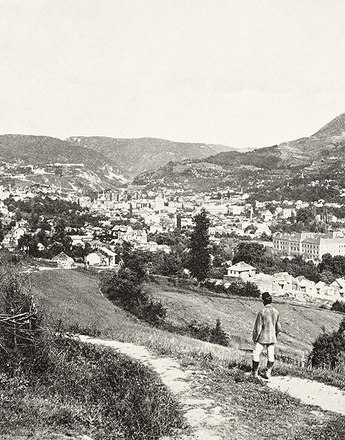In economic terms, the Austro-Hungarian Empire was not prepared for a long and major war. It was above all the illusion as to the duration of the war that prevented a comprehensive economic ‘rearmament’.
At the latest since the 18th century, Austria-Hungary found itself in the insoluble contradiction that the monarchy was acting as a major European power without meeting the corresponding economic conditions. After the lost wars in the 1850s and 1860s in Italy and against Prussia, a period of peace, however, appeared to have broken out in which the economy also recovered. However, the four decades of relative quiet that followed the 1866 war came to an end at the latest after the “Annexation Crisis” of 1908 set off by the annexation of Bosnia and Herzegovina, generating new tensions between the European Great Powers and triggering huge rearmament activities on land and on sea.
This development led straight back to the old dilemma: Because Austria-Hungary was not a major maritime power, it spent relatively less on armaments than its rivals (see table). Nevertheless, the Empire was a country that had already been “living beyond its means before 1914” (Eduard März), due above all to rearmament. Seen in this way, the Empire, as the Hungarian historian Oscar Jaszi described it, was “in economic terms already a defeated Empire in 1913.” The only farsighted war economy measure that was taken at the outbreak of war was the suspension of the Austro-Hungarian Bank’s gold redemption obligation on 4 August 1914. (Under the gold standard regime, the national banks were obliged to convert the banknotes issued by them into gold upon demand.)
Miscalculations such as the one that the war would only be brief ensured that the Dual Monarchy, in economic terms, practically stumbled into the war. There was no planning going beyond the short term. The start of the war immediately led to economic turbulence, because workers and farmers classified as fit for duty were conscripted irrespective of the requirements of armaments production and the securing of the food supply. In addition, the sudden decline in civilian demand led to unemployment.
The amateur war planning led to a downright mobilisation crisis, due above all to difficulties in the procurement of food, clothing and military equipment. Since rearmament only started slowly, there was an acute shortage of heavy weapons and winter clothing in autumn and winter. The price paid was a high loss of human life.
Translation: David Wright
Clark, Christopher: Die Schlafwandler. Wie Europa in den Ersten Weltkrieg zog, München 2013
Janz, Oliver: Der Große Krieg, Frankfurt am Main 2013
März, Eduard: Bankpolitik in der Zeit der großen Wende 1913–1923. Am Beispiel der Creditanstalt für Handel und Gewerbe, Wien 1981
Rauchensteiner, Manfried: Der Erste Weltkrieg und das Ende der Habsburgermonarchie, Wien/Köln/Weimar 2013
Wegs, Robert J.: Die österreichische Kriegswirtschaft 1914–1918, Wien 1979
Quotes:
“in economic terms already a defeated Empire …“: Jaszi, Oscar: The Dissolution of the Danube Monarchy, Chicago 1961, 212 (Translation)
-
Chapters
- The underlying causes of the First World War
- The folly of the erstwhile rulers
- Schumpeter’s imperialism theory: Did big business press for war?
- A state living beyond its means
- Problems of the war economy
- High mark and decline of the economic war effort
- Shifts in the production structure
- The change in the social balance of power in the course of the war




